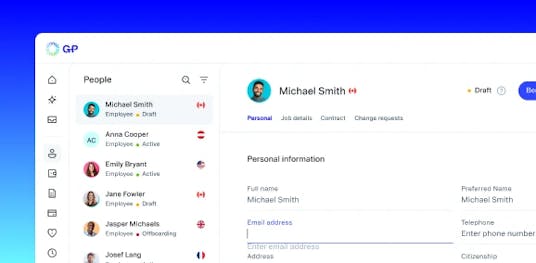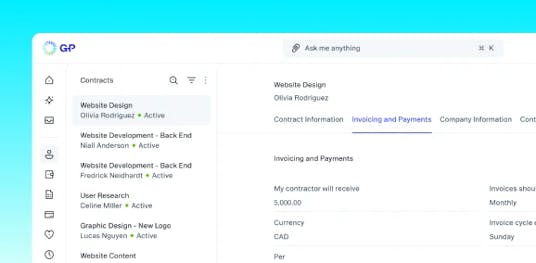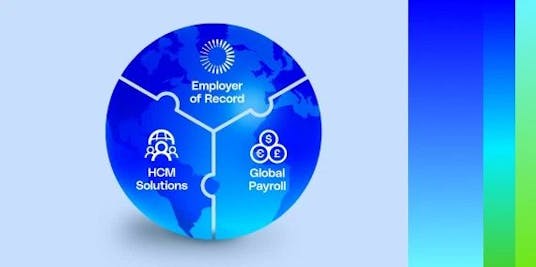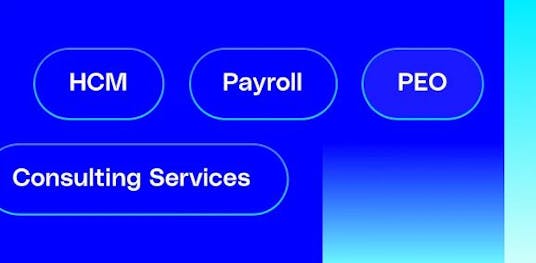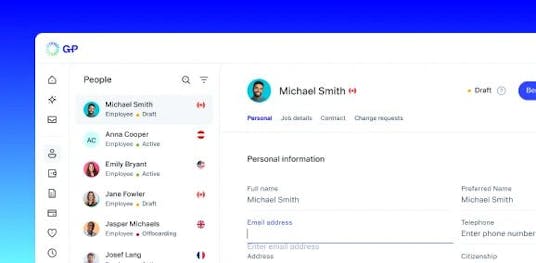In Vietnam, employer of record (EOR) products and services are essential for ensuring compliance with the country's complex employment regulations. They ensure that employment processes, from hiring to termination, meet local legal requirements. AI-powered EOR services include everything from legal employment contracts and managing payroll taxes to ensuring compliance in business operations.
By tapping into the expertise of an Employer of Record Vietnam, companies can confidently navigate diverse regulatory requirements, minimizing legal risks. Support from EOR Vietnam minimizes compliance issues, enabling companies to concentrate on core operations, and freeing them from the complexities of local legal and tax requirements.
Hiring in Vietnam with an EOR
Located in Southeast Asia, Vietnam is a dynamic and rapidly growing economy with a population of over 100 million people. Successfully navigating the Vietnamese labor market requires a deep understanding of local customs and labor laws. An employer of record (EOR) in Vietnam provides a streamlined, compliant pathway to hiring local talent, avoiding the need to establish a legal entity in the country.
When negotiating the terms of an employment contract and offer letter with an employee in Vietnam, it's essential to understand the statutory requirements and common market practices outlined below. Vietnam EOR experts assist businesses by ensuring compliance with labor laws and local market practices, guiding employers in developing compliant employment contracts.
Vietnam employment contracts
In Vietnam, a written employment contract is legally required. While the contract must be in Vietnamese, a bilingual version is often preferred by international companies to comply with international hiring standards. The contract must include key details such as:
-
Employer and employee identification details
-
The job description, responsibilities, and workplace location
-
The duration of the employment contract (definite, indefinite, or seasonal)
-
Salary, payment schedule, allowances, and any other additional payments
-
Working hours and rest periods
-
Social, health, and unemployment insurance contributions
-
Arrangements for training and professional development
-
Any required personal protective equipment
The offer letter and employment contract must state the salary and all compensation amounts in Vietnamese dong (VND). An Employer Record in Vietnam ensure that all compensation and benefits are properly handled, including payroll processing and tax compliance.
Working hours in Vietnam
The standard workweek in Vietnam is 8 hours per day, not exceeding 48 hours per week. While a 6-day workweek is legally permitted, most office-based roles follow a 40-hour week from Monday to Friday. Employees are entitled to at least 1 full day off per week, typically Sunday.
Public holidays in Vietnam
Vietnam observes 11 public holidays where employees are entitled to a paid day off. These are separate from an employee's annual leave entitlement. The largest holiday is the Lunar New Year, or Tết, which typically involves a 5-day celebration.
The public holidays are:
-
New Year's Day: January 1 (1 day)
-
Tết (Lunar New Year): Typically late January or February (5 days)
-
Hung Kings' Commemoration Day: 10th day of the 3rd lunar month (1 day)
-
Reunification Day: April 30 (1 day)
-
International Labour Day: May 1 (1 day)
-
National Day: September 2, plus one adjacent day as determined by the Prime Minister (2 days)
Per the labor code, foreign employees in Vietnam are also entitled to 1 paid day off for their home country's traditional New Year and 1 paid day off for their National Day.
Leave entitlements in Vietnam
Annual leave in Vietnam
Employees who have worked for an employer for 12 months are entitled to a minimum of 12 days of paid annual leave. For every 5 years of continuous service with one employer, an employee gains 1 additional day of leave. Employees working in hazardous or strenuous conditions are entitled to additional leave. By law, untaken leave should be paid out at the end of the year, but it is common practice for employers and employees to agree to carry over unused days to be taken by March 31 of the following year.
Vietnam personal leave
Employees are entitled to paid leave for significant personal events:
-
Marriage: 3 days
-
Child's marriage: 1 day
-
Death of a spouse, parent, or child: 3 days
Sick leave in Vietnam
Employees with a valid medical certificate are entitled to paid sick leave funded by the Social Insurance Fund. The allowance is 75% of the employee's salary on which social insurance contributions are based. The maximum number of days per year depends on the employee's length of contribution to the social insurance scheme:
-
Fewer than 15 years of contribution: 30 days
-
15 to 30 years of contribution: 40 days
-
More than 30 years of contribution: 60 days
Maternity and paternity leave in Vietnam
For mothers, this leave is paid by the Social Insurance Fund at 100% of the employee's average salary over the 6 months preceding the leave. Vietnamese employers must ensure compliance with maternity rights under local labor laws. An employee on maternity leave or with a child under 12 months old is protected from termination, except in cases where the company ceases operations.
Fathers are entitled to 5 to 14 days of paid paternity leave, with the exact duration depending on factors such as single or multiple births and whether the birth was via C-section.
Compensation and benefits in Vietnam
Supplementary insurance in Vietnam
While the state provides mandatory health insurance, many employers offer supplementary private health and life insurance as a competitive benefit to attract and retain talent.
Bonuses in Vietnam
While not legally mandated, a 13th-month salary bonus is a very common and expected part of the compensation package in Vietnam. It is typically paid before the Tết holiday and may be prorated for employees with less than one year of service. Performance-based bonuses are also common.
Termination and severance in Vietnam
Probationary periods in Vietnam
Probationary periods must be agreed upon in the employment contract and cannot exceed the following limits:
-
180 days: For enterprise managers.
-
60 days: For positions requiring a college degree or higher.
-
30 days: For positions requiring intermediate vocational training.
-
6 working days: For all other positions.
Termination and notice periods in Vietnam
Terminating an employee in Vietnam requires a legally recognized reason and adherence to strict procedures. Employers must comply with statutory advance notice: 45 days for an indefinite-term contract and 30 days for a definite-term contract. Wrongful termination can result in penalties, including mandatory reinstatement, payment of back wages, and a fine equivalent to 2 months' salary.
Severance pay in Vietnam
For employees who have worked for 12 months or more, a severance allowance of a half-month's salary for each year of service is payable upon certain types of termination, such as redundancy due to organizational or technological changes.
Taxes and social insurance in Vietnam
Vietnam has a mandatory social insurance system covering sickness, maternity, work-related accidents, retirement, and death. Contributions for social, health, and unemployment insurance are required from both employers and employees.
-
Employer contributions: 21.5% of payroll (17.5% for social insurance, 3% for health insurance, 1% for unemployment insurance).
-
Employee contributions: 10.5% of salary (8% for social insurance, 1.5% for health insurance, 1% for unemployment insurance).
These contributions are based on the employee's gross monthly salary, subject to a cap. Additionally, employers must contribute 2% of their payroll to the trade union fund, regardless of whether their employees are union members. Employee trade union fees (1%) are voluntary.
Why G-P?
G-P EOR is the award-winning, AI-powered SaaS platform that empowers ambitious companies to build global teams. Onboard, manage, and pay top talent in over 180 countries in minutes, bypassing the typical time, cost, and complexity of local entity setup. G-P EOR is the preferred partner for leading HCM, PEO, and payroll platforms. Bring your workforce data together in one place to maintain existing workflows while guaranteeing consistent and accurate data across your integrated systems.
Request a proposal today to learn more.
